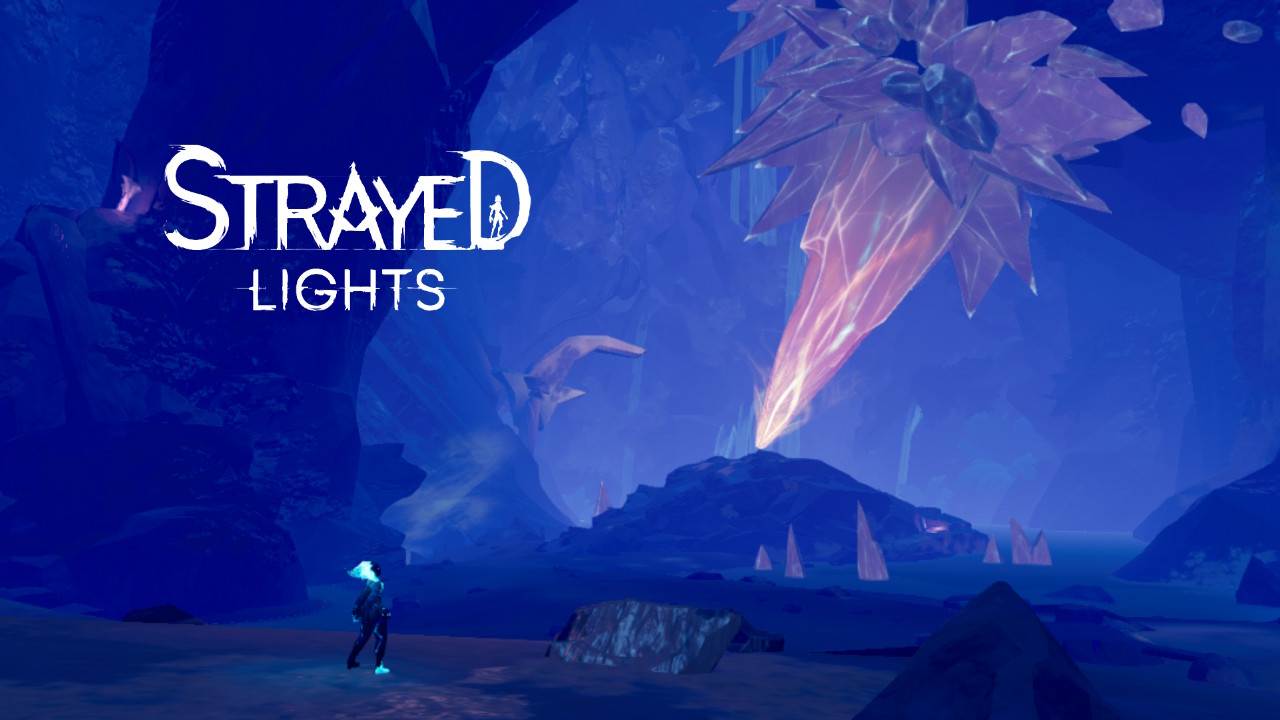Strayed Lights is an action fighter and platformer developed and published by Embers. This game is beautiful in the way it tells its story. There’s a lot to love about it, but there are also some aspects of the game that don’t do it justice.
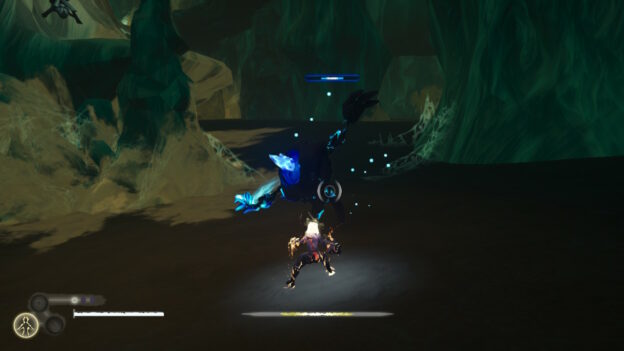
First, Strayed Lights asks you to adjust the brightness of the gamma rays within the game. If you’re unable to do this, it asks you to adjust the brightness settings on your Switch. Now, I almost always play games with my Switch’s brightness turned all the way down because I’m sensitive to light.
Many of the areas in this title are dark, and the battles are bright. I often had to keep switching the brightness on my Switch just to see what I was doing. Due to that, I was only able to play this game for about an hour at a time before getting a headache and feeling light-headed.
It may seem obvious, considering this game is about lights and shadows, but I would have appreciated some sort of flash warning upon turning the game on. Or, better yet, in the game’s description.
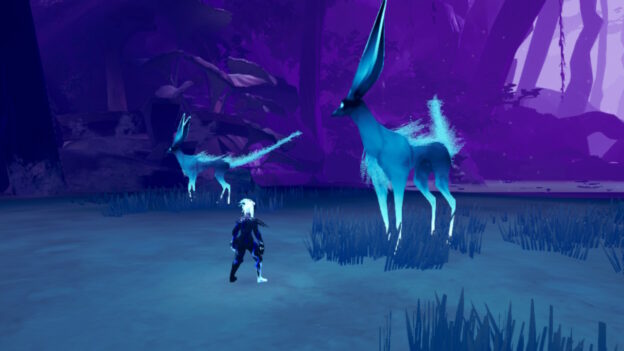
But now, let’s get into the heart of Strayed Lights. The story is told silently as you go through the game. According to the description, you “play as a newborn flame torn by shadows.” As the game progresses, your character grows stronger and seems to age. The enemies are your friends who have turned rogue or were taken over by the darkness. Each boss seems to represent a different emotion: loneliness, anger, depression, etc.
I’ll be honest, I don’t quite understand the story. Since there’s no dialog, it’s difficult to interpret what the game wants you to get out of it. Of course, that’s also the beauty of it. I’m sure no two players will view the story in the same way. Personally, I found Strayed Lights to have themes such as coming of age, mental health, patience, and kindness. It’s a story worthy of discussion, even if you don’t completely understand it.
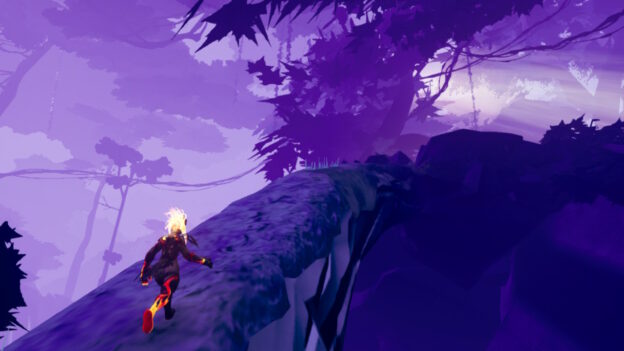
The gameplay is a mixture of platforming and battling enemies and bosses. First, I’ll go over the meat of the game: the battling. I enjoyed the battles quite a bit because your character plays defense. In order to damage the enemies and bosses, you need to parry their attacks.
The protagonist can switch between two colors—orange and blue—and so can the enemies. You need to match the enemies’ color when parrying to damage them or steal their energy. If you don’t match their color, that’s okay; you’ll still block the attack, but you won’t damage them. The enemies can also turn purple, which is sort of like a rage attack. When that happens, you can’t parry but have to dodge out of the way. Your character does have an attack button, but I rarely used it.
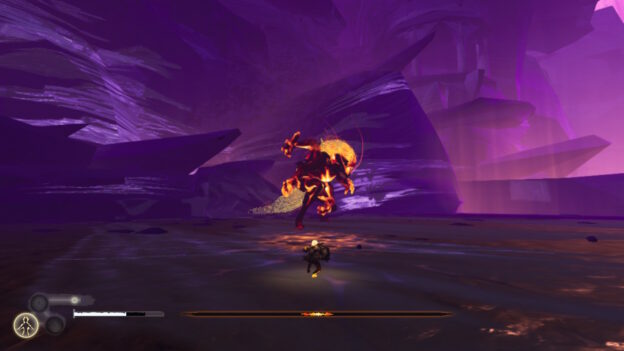
In Strayed Lights, you mostly explore various areas, defeat enemies, and then find and battle the boss. The battles were all the same, other than some enemies being fast or slow. The bosses were intriguing, but once you learned their attack patterns, they were relatively easy to defeat.
When you win against a boss or enemy, your character gains power shards to upgrade their skills. For example, you can earn more health and abilities, such as being multicolored for parrying for a short amount of time. You can upgrade your character in the inner world, which also contains portals to the various areas.
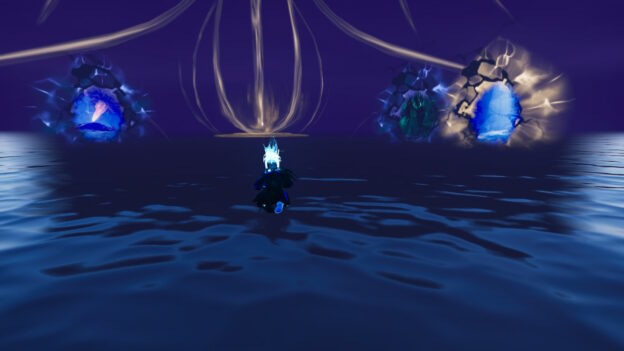
This brings the discussion to platforming. There are numerous areas to explore in Strayed Lights that branch off from one area. As soon as you enter each area, a portal to it will open from the inner world. Once you complete an area, the portal will close, and you’ll no longer have access to it.
I liked having the portals appear and disappear because it allowed me to gauge how much progress I’d made. There are no maps, so it was difficult to tell whether I was close to getting through an area. Luckily, the areas aren’t large; you can get through them each within an hour or less.
Each level is more or less the same. You explore, come across enemies, and eventually get to the boss. The graphics of the enemies and characters are great. The backgrounds are pretty, too, but sort of barren. Unfortunately, the platforming wasn’t easy, either. I died more so when missing a jump instead of being in battle.
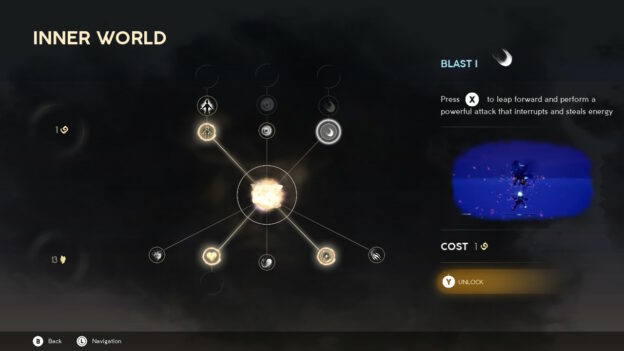
Dying is annoying in Strayed Lights. The game autosaves often, and you have no lives. So, you’ll respawn in your spot. However, it’ll take a few minutes. The loading screens took so long to go from one area to another, or respawning from death, or even just turning on the game. I timed it once, and the loading screen remained for one minute and ten seconds.
In addition to the loading screen, there were other performance issues I ran into. The autosave would sometimes freeze my game for a few seconds. Some areas had significant frame rate drops, so my battles with enemies were extremely laggy.
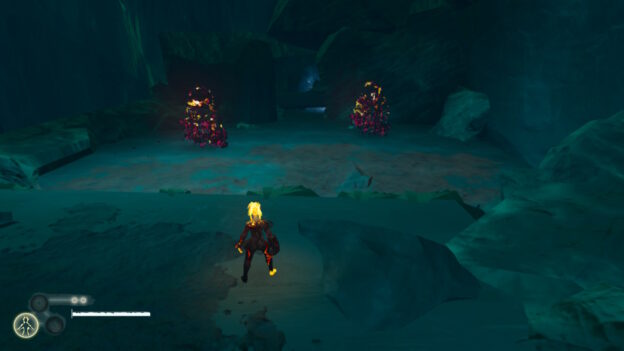
I enjoyed my time with Strayed Lights. It’s a fun game with a unique battle system that tells a beautiful silent story. However, the performance issues often took some of the fun away, and the battles grew repetitive over time. Once you get the hang of the gameplay, it’s easy to get through the game within a handful of hours. If Strayed Lights looks intriguing to you, then chances are you will enjoy this game.
Review: Strayed Lights (Nintendo Switch)
Fair
Strayed Lights is a beautiful game that tells an abstract yet meaningful story. However, its unique battle system grew repetitive, and some performance issues took some of the fun away.

